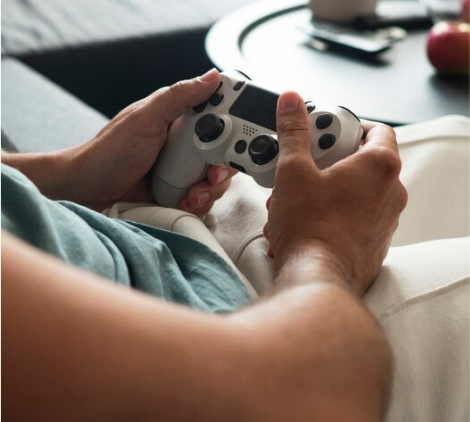Get a free mental health assessment and find out what treatment options are most suitable for you. Call to learn more. Please note that the We Level Up treatment center offers other complementary therapies excluding biofeedback, at this time. Please call to find out more about our therapy programs.
What is Biofeedback Treatment
Biofeedback treatment is a technique that helps recovering primary mental health clients with or without secondary disorders gain control over their minds and body during treatment. It is used to help control certain bodily functions such as heart rate and response to different sensations. According to the National Institute for Biotechnology Information (NCBI) [1], repeated sessions resulted in long-term abstinence from drugs and alcohol.
Biofeedback affecting recognition and control of brain waves is used for managing many behavioral health cases, including anxiety, depression, eating disorders, PTSD, ADHD, and more. This treatment is non-invasive and does not involve the use of prescription medicines.
During biofeedback, the patient is connected to electrical sensors that monitor the body’s reactions and help receive instant information about the body. The data allows the individual to make specific changes to the body, such as relaxing certain muscles to reduce pain. Moreover, biofeedback therapy helps addicted individuals learn to control their thoughts and reactions in stressful situations, which could trigger a relapse or other harmful behavior related to substance abuse.
In the field of addiction treatment, biofeedback typically refers to neurofeedback. It involves measuring brainwaves and helping to alter them to improve cravings, minimize relapse. It also helps in managing withdrawal and treating health problems associated with substance abuse.
Types of Biofeedback Treatment
Biofeedback treatment can measure nearly any bodily response. However, the three types of biofeedback that are most regularly practiced include:
- Neurofeedback (EEG): Measures brain wave activity
- Electromyography (EMG): Measures muscle tension
- Thermal: Measures body temperature
Most therapists choose EEG biofeedback when treating Drug and Alcohol Addictions and co-existing mental health conditions.
Biofeedback Therapy for Primary Behavioral plus secondary Addiction Treatment
When a person abuses drugs or alcohol, changes are made to the chemical composition of the brain. Levels of some neurotransmitters may be artificially elevated while others are diminished. When drug use is repeated regularly, the chemical alteration in the brain can become more established, and the brain may actually make different connections and create “shortcuts” to reward. Without the presence of the drugs and their interaction with brain chemicals, withdrawal symptoms can occur.

Alcohol or drug withdrawal symptoms often lead to physical stress and heightened involuntary responses. Biofeedback can help treat common symptoms of drug withdrawal, such as anxiety, depression, chronic muscle pain, and restlessness.
Effects of Biofeedback Treatment
Behavioral Stress and Addiction Co-occurring disorders
Many of the conditions on which biofeedback works best, including mental health disorders and co-occurring substance abuse disorders, can be due to circumstances brought about or aggravated by stress.
Behavioral disorders like stress are some of the biggest triggers of co-occurring substance abuse and can contribute to their relapse. Therefore, learning how to handle stress in a healthy way is a critical component of treatment for both primary mental health disorders plus secondary drug and alcohol addiction, both during and after treatment.
For an individual with a substance use disorder, alcohol or drugs often become a means to overcome their primary mental health stress disorder. In addition, biofeedback therapy sessions can help a person learn to regulate stress and moderate their reactions to people, places, and circumstances that could trigger substance abuse.
Relaxation Exercises
In conjunction with biofeedback treatment, therapy will typically include different relaxation activities such as:
- Deep breathing
- Progressive muscle relaxation: alternately tightening and then relaxing different muscle groups
- Guided imagery: focusing on a specific image (such as the texture and color of an orange) to focus your mind and make you feel more relaxed
- Mindfulness meditation: focusing your thoughts and letting go of negative emotions.
When used during primary mental health and secondary addiction theraoy, biofeedback traetment may be able to help by:
- Reducing drug cravings
- Lessening episodes of relapse
- Handling withdrawal symptoms
- Promoting emotional health
- Increasing cognitive abilities
- Enhancing overall life function
- Improving sleep pattern
- Reducing impulsivity
- Sharpening focus and attention
- Controlling moods and emotions
- Managing stress and tension
- Adjusting negative thoughts
- Decreasing self-destructive behaviors and improving self-regulation
Many patients practice biofeedback treatment to manage health-related issues like:
- Low or high blood pressure
- Chronic gastrointestinal problems
- Epilepsy
- Migraines
- Chronic pain
- ADHD
- Stress
- Anxiety
- Addictions
Get Help to Primary Mental Health Stress Disorder & Overcome Addiction & Related Co-occuring Disorders
Inpatient behavioral centers offering biofeedback therapy can help those recovering from primary stress disorder with a secondary addiction disorder. Biofeedback therapy can work well with other treatment options like cognitive behavioral therapy (CBT). This treatment also pairs well with other alternative recovery techniques like art and music therapy.
Take Control of Your Life Today. Our friendly mental health specialists won’t give up on you. Biofeedback therapy may be a great treatment program that suits you. Call us now at We Level Up FL to talk about it. We a have 24/7 hotline that is ready to assist you.
Programs, services, and treatments vary. We Level Up FL is a primary mental health center offering co-occurring treatments. We treat the entirety of behavioral health disorders including their secondary corresponding illnesses to improve long-term recovery outcomes. Get a free mental health assessment and find out what treatment options are most suitable for you. Call to learn more.
We Level Up Florida can help with inpatient primary mental health therapy. Depending on the extent of secondary behavioral disorders such as addiction we can first help assess your condition and thereafter guide you to suitable treatment options.
Sources
[1] NCBI – https://www.ncbi.nlm.nih.gov/pmc/articles/PMC2259255/





